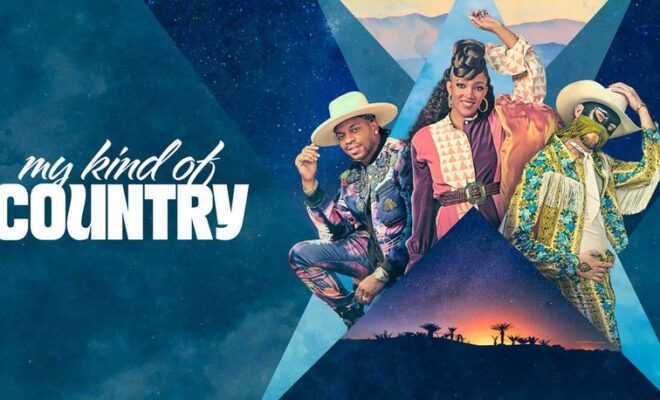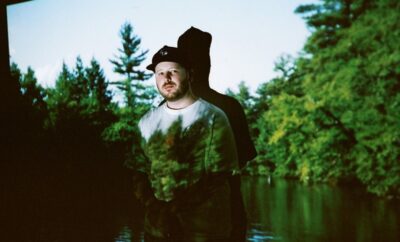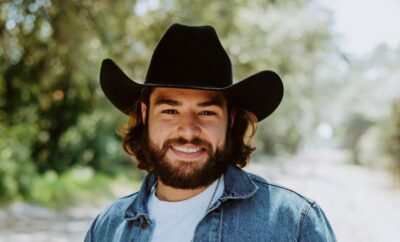 Apple TV+
Apple TV+
Interviews
My Kind of Country
By: Jamie Steinberg
Q) What sets “My Kind of Country” apart from other reality shows about singing?
Mickey Guyton: I think for me, how it differed from a lot of other singing competition shows is you got a real front row seat and window into their minds, the minds of these artists and their artistry. Like, when they create their sets of what they visualized themselves – when they finally are out there and they have their own tours – you got to really see into their minds, and it was just so beautiful. You never get that as an artist up until you’ve had several number ones and you can finally have your tour, that you get that opportunity. And they got that right away. And I just think that was something that was different for me.
Jimmie Allen: What I loved that was different. It’s a show about just country music. That stood out [as] different. And then like you said, we actually got to see artists be artists. A lot of other singing competition shows we see the artists be singers. You know what I mean? We’re not going to see the artistry side. And on this show, we got a chance to see the artist side.
Orville Peck: I think too, I mean, we weren’t sitting sort of on a panel with, like, buttons in front of us, or sort of these production elements that we’d find in a lot of these shows. I think we were just hanging out with these artists every day, talking to them. And, yeah, like being able to help them on a real level.
It never felt scripted or produced. It all just felt very authentic and sincere, which is kind of, I think, at the heart of this show. There is so much sincerity to it, which is, in my opinion, what I think is very different from a lot of those shows that sometimes typically could lack a bit of that.
Q) How were you able to make “My Kind of Country” your own?
Jimmie Allen: “I feel like I made it my own just from my view. We all had different views on kind of what we wanted to share with the artists and what we were looking for. Me, I wanted to kind of come in with the approach of [sharing] what I’ve learned from other artists about the business, and also try to talk to the artists about the business side. Yes, you can be creative, but if you want to reach a certain level, there’s a business aspect that comes with it.
And the cool thing is, it’s not like any other show to where it’s not taking away from any other show. It’s standing on its own. It’s its own thing. And you come to “My Kind of Country,” you know you’re going to hear country music from different parts of the world – and that’s what I think makes it its own thing.”
Mickey Guyton: I think also the way it was shot. It was shot in more of like a documentary form, which I thought was really beautiful.
And, also, you got a real window into what was going on in the artist’s mind. You got to see them be artists. You got to hear their original songs. They plugged their original songs at the end of each episode, which I just think is so cool. And they got to work with, like, Adam Blackstone, who’s an incredible music director. And you have a creative director like Jemel McWilliams, who’s worked with everybody from Beyonce to John Legend. They’re getting the other side of the industry than just singing, right?
Orville Peck: And people who really work and make this industry work. I mean, like Jemel, Adam… I mean, Jay Joyce, Cameron Duddy, Katherine Hahn. I mean, these people who work really in this industry. And for young artists essentially sort of coming out of obscurity in some cases, we got to provide them with – even if they didn’t win the competition, I mean, they’re going home with a real invaluable experience.
Mickey Guyton: Like a workshop.
Orville Peck: Yeah, exactly. Like, a real sort of workshop, a masterclass on this industry and Country music in a sincere way. So, it was lovely for us to be able to do that because it also isn’t typical that it’s, like, these other shows there’s one winner or whatever. We really got to work with these artists and provide them with what we feel is very, very genuine and helpful advice.
Q) What does country music mean to you?
Orville Peck: For me, it’s about storytelling, I think. Like I always said, it’s the storytelling genre. So, of course, people can say it’s about a banjo or a sound, or maybe it’s about where you’re from. But I think this show, what it stands for, is the reality is country is universal. And for me, it’s about storytelling, for sure.
Mickey Guyton: For me, we had asked this question actually to some of the artists on the show, and one guy specifically, Wandile, he said that country music is foundational, and I thought that that was such a powerful answer. And I believe, like, all of us, it kind of grounded us, and it was the foundation of a lot of what we are today. Musically, and that’s what it means to me.
Jimmie Allen: Honestly, that answer for me changes sometimes weekly. Sometimes I feel like for me country music changes based on my mood, you know? Sometimes it’s about stories. You know, sometimes for me it’s worship music to middle-class people. You know what I mean? The people that are working nine to five. It’s kind of like songs that help get them through whatever situation they’re in.
And it basically changes. Yeah, I never really have one straight answer on that, honestly, because there’s so many answers you can give for what Country music means to you.”
Q) What are some qualities you are looking for in a country music artist?
Jimmie Allen: I look for determination a lot of times. People that will continue to show up no matter how many doors close in their face. Because in this business, you’re going to get told “no” a lot. You’re going to hear “no” more than you’ll hear “yes.” And it’s about how many times can you keep showing up. Because when you fall and you get back up, that’s what living is.
I was looking for that. But also, I’m very, to me, a lot of times about business. So, I’m like, “Okay, who knows who they are? Who knows themselves?”
It’s not about looking a certain way, sounding a certain way. So, like, “Okay, do you know you and can you market yourself? Can you really tap into what you need to tap into to get other people to connect with who you are? Can you be vulnerable enough sometimes to find a connection?” Because a lot of times, I feel like what connects us as people isn’t joy and happiness. It’s pain. When you find someone that has similar pain as you, you really feel that connection.
Mickey Guyton: We look for honesty. Your intentions as an artist and how you want the audience to feel, that’s something that personally I look for. I look for the heart. I think that’s something that’s so important. Music is…it is almost like worship. In any genre. And when you hear something, it makes you feel something, emotions and emotional. And that’s what I look for in the artists.
Orville Peck: I think for me, it’s like the word we’ve all used is “artists.” I think there can be really great singers out there who might be very technically gifted or talented. […] But I think to be an artist, which is really what each of these people we found were in their own ways…they were all really artists with really specific things to bring to the table.
Q) What is the best advice that you imparted on the artists?
Mickey Guyton: Some advice that I remember leaving the artists, I always want them to take care of their mental health. That is something that is really, really important because nobody tells you how hard this is mentally on anybody. It’s really, really hard. So that was something like, always put that first as you’re pursuing your career.
And, also, really figuring out who you are as an artist. Those are two things that I gave – the advice I gave to these artists.
Orville Peck: I think I struggled in the early parts of my career with feeling like I could show up as myself and be vulnerable. Sometimes, as performers, we want to be employable, or we want to be likable, or we want to be successful, and we think that means we have to change who we are and show up in a way that’s kind of like palatable or preferable. And I think when I finally got to the point that I learned, oh, actually, just me showing up as myself is the best version of me and that became the most successful version of me too.
I think that was something nice to kind of encourage in these artists that […] you are here because of you. And what we love is you and we love what we see, the vulnerable side of you. I really tried to push that narrative.
Jimmie Allen: I think that’s something that we all push because we’re all very… We’ve learned to be ourselves. And I also push artists to figure out what does success mean to you. Because to some artists, success means touring stadiums, touring arenas, having number ones on country radio. But to some artists success means just writing songs. And if it means you play a venue for five people, you play a venue for five people.
So, determining what success is to you, and then that’s your goal. That’s where you want to go to and kind of live with that and be okay with what your version of success is and be okay with who you are.
*CONFERENCE CALL*





You must be logged in to post a comment Login